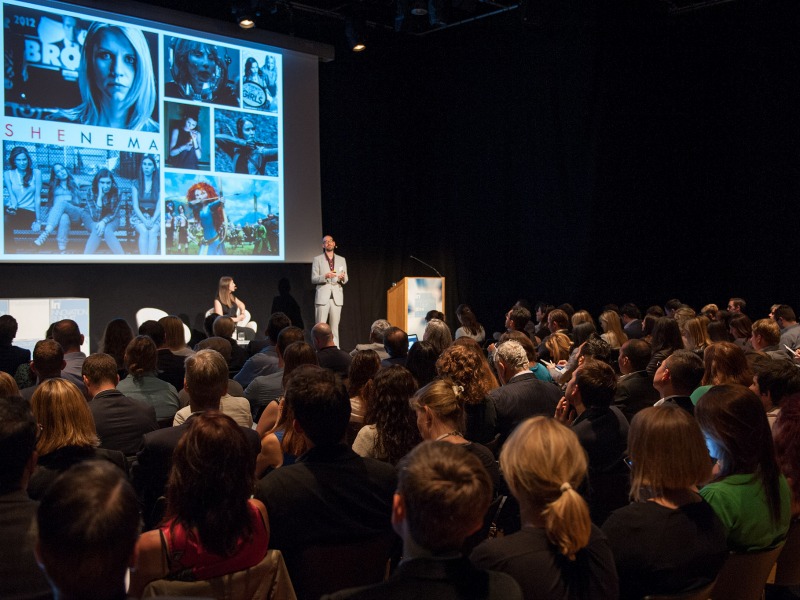Arun Sudhaman 23 May 2014 // 9:20PM GMT

Our In2 Innovation Summit London earlier this week proved to be a highly successful event, with a sellout crowd at Kings Place treated to an enthralling variety of sessions that attempted to understand the most important engagement trends of the future.
You can catch up with all the specific session coverage here, or have a look at the lovely pix here.
By way of a summary, I thought it would be nice to distill the various insights from the superb speaker line-up into seven things that might help you amid the dramatic changes that are sweeping through the communications industry.
1. Tone is a brand's most important asset
Multiple speakers made this point, none more so that Bite Communications head of consumer Jon Silk, who pointed out that a brand's tone is the only thing that stops it from being boring. Silk used a variety of smaller challenger brands to make his point, including the Dolphin Pub's irreverent Twitter presence. In particular, he advised delegates to never forget about the people in a brand, a point that was echoed in Gabriela Lungu and Tom Beckman's discussion of creativity. The Weber Shandwick duo looked at why brands that take a stand or have a point of view are able to build stronger relationships. The lessons for faceless corporate monoliths are clear.
2. CEOs need a dose of reality
Perhaps the conference's most memorable quote came from Good Relations Group CEO Jackie Brock-Doyle, who pointed out that "our job is not to make shit smell of roses; sometimes CEOs need to smell their own shit." In particular, the former London 2012 communications director noted that public relations people must elevate themselves to a true CEO counsel role, helping business leaders look beyond making money towards building trust. To do that, though, requires a significant skills upgrade, with a specific focus on being more entrepreneurial, 'hard business-minded' and innovative.
3. Super-talent will not command super-rates
The final session of the day was arguably the most important, because the PR industry will never evolve until it solves the talent conundrum. It is an issue that was brought into stark relief when the panellists — including CapGemini UK's Tom Barton, Sanofi Pasteur's Celine Schillinger and Tata's Abhinav Kumar — ran through the bewildering array of capabilities that PR people are now expected to deliver. With that in mind, TRACCS CEO Mohamed Al-Ayed observed that PR people need to be like "supermen and superwomen." Yet, when Paul Holmes asked if they would command "super-rates," Barton was dismissive.
4. Data does not do it all
Data can help us make better decisions. As Xerox's Darrell Minards pointed out, marketing automation is helping his company "understand the often unpredictable buyer journey." Yet the In2 Summit featured a number of speakers who cautioned against using data as a crutch or, worse, to rationalise bad decisions. Electrolux's Mattias Radstrom, for example, noted that PR people need to find a better balance between big data and creativity, while Salesforce's Stacey Torman cautioned that any technology is only as good as the people using it. Meanwhile, some panellists shrugged off the privacy implications of the data debate, even as Radstrom warned brands to "not be creepy." Leave it to Prime's Tom Beckman to have the last word, by observing that "creativity without data is like sending a great and amazing rocket to the wrong planet."
5. Everyone can learn from startups
If it sometimes seems like startups are having more fun, then it's probably because they are. They are like "classrooms without teachers," said Rocket Internet's Andreas Winiarski. And that sense of adventure helps fuel the kind of brand tone and playful humour that turns consumers into loyalists and advocates. That is just one thing that bigger companies can learn from the new players disrupting a range of industries. Our startup panel — which also featured Swiftkey and Blippar — reeled off a number of other benefits to being an underdog, from the freedom of a small budget, to the ability to invite critics to become part of the brand. Startup lessons are not limited to other brands, all of the panelists recounted the issues they face from an agency that is not keeping pace with the startup journey: "The key challenges are budget, geography and planning," said Barnett, pointing out that agencies must be more nimble and less formulaic if they hope to build business with challenger brands.


































.jpg)







.tmb-135x100.jpg)









